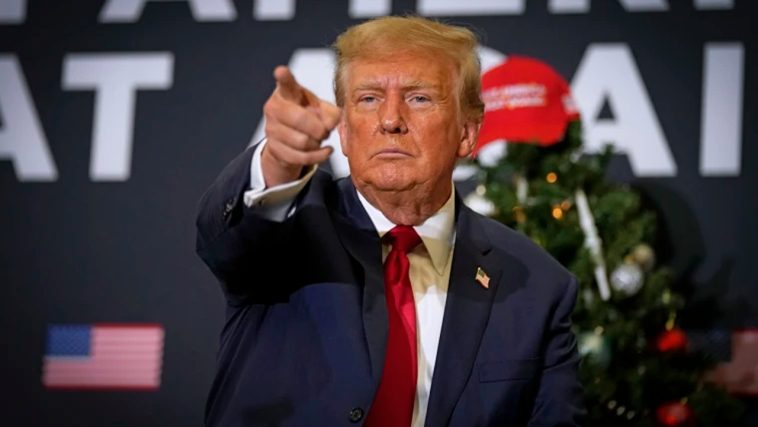The ongoing ‘election interference’ trial of ex-President Donald Trump, overseen by a federal judge in Washington, D.C., continues to face hurdles. It appears progressively doubtful that the previously scheduled March hearing will proceed as anticipated. Presiding U.S. District Judge Tanya Chutkan initially set the hearing to be inaugurated on March 4. Trump, facing four allegations as a result of Special Counsel Jack Smith’s inquiry, defends his innocence.
However, the case’s progression currently remains dormant, awaiting a verdict from the U.S. Court of Appeals for the D.C. Circuit. The pending decision concerns the potential granting of immunity to Trump from the prosecution. The immunity request is based on the association of the allegations he faces with his tenure as a president. Federal prosecutors have countered this notion with the argument that any criminal activities by the office holder remain separate from the presidential role.
As a result, the prosecutors maintain that Trump cannot exercise absolute immunity as a means to dismiss the proposed charges in the trial. This outlook has been advanced, among others, by the former federal prosecutor, Joyce Vance. She expressed her view on her online platform, Civil Discourse, which promotes open discussion and reflection on current legal matters.
Vance hinted at the ongoing delays in the proceedings, stating that as the clock continues to race, the possibility of holding the initial trial date on March 5 looks increasingly unlikely. This trial date had been set by Judge Chutkan for the January 6 prosecution by the Special Counsel.
Echoing Vance’s sentiment, Chutkan herself has conceded that the set date of March 4 may be subject to delay. This potential deferral is tied directly to the speed at which the convoluted issue of immunity can be fully addressed and resolved.
If the judgment from the appeals panel is unfavorable to Trump, and the official immunity is deemed inapplicable in this case, his legal team will probably aim to obtain a U.S. Supreme Court ruling on the matter. Hence, the entire process could extend far beyond the current proposed dates due to the inherent complexities and formalities of the legal system.
The final verdict will undoubtedly have wider implications, not only for Trump but also for the understanding of the extent of presidential immunity. It is a key topic of discussion that probes the ethical confines of the U.S. political and legal structures.
The case is undeniably under close scrutiny by both the legal community and the general public. Its outcomes will have a substantial influence on the interpretation of legal doctrines and the boundaries of executive power and immunity. It will also set a precedent for future inquiries into presidential behavior.
Trump, however, stands firm on his position, emphasizing that he has not committed any wrongdoings. He aims to refute all allegations made against him during his presidential term, reinforcing his commitment to fight the charges until the end.
Despite the escalating tension surrounding the stalled trial, all parties involved are following their respective legal obligations by engaging in a meticulous and unbiased examination of the vital matters at stake.
This ongoing case illustrates the myriad complexities that accompany judicial decisions of this magnitude. The tangled intertwining of politics and the legal system brings forth many challenges in maintaining impartiality.
Nonetheless, everyone’s perceptions and conclusions are being put to the test in this high-profile trial. It’s a clear reminder of the far-reaching impact that such prominent cases can have on society.
Democrats, Republicans, and neutral observers alike are watching the proceedings with keen interest as they continue to unveil crucial perspectives on the divisions and debates embedded in the American political system.
The waits, the setbacks, the uncertainties all encapsulate the complexity of this trial. Each step, each decision will shape not only the immediate trial schedule but also the broader understanding of the law as applied to those in the highest office.
The circumstances surrounding this event are emblematic of the dynamic friction existing at the junction of the justice system and democracy itself. This trial represents a significant moment in U.S. legal and political history, underscoring the principle that no one, not even the president, is above the law.
For all interested parties, developments in this case will undoubtedly be followed closely. The trial of a former president, who categorically denies any wrongdoing, and the examination of executive immunity’s extent are essentially a microscopic examination of the interplay between law and the exercise of power.
More Articles: Real News Now



